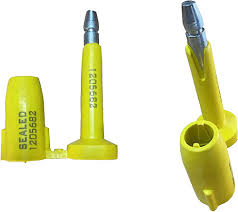In today’s globalized economy, the shipping industry plays a pivotal role in ensuring the smooth movement of goods across borders. With an ever-increasing emphasis on security and traceability, businesses involved in international trade must prioritize safeguarding their shipments against tampering, theft, and unauthorized access. One powerful tool that has emerged to address these concerns is the ISO 17712 certification. This certification sets a standardized benchmark for the security of shipping containers, providing a range of benefits that can significantly elevate your shipping game.
Understanding ISO 17712 Certification
ISO 17712 is an internationally recognized standard developed by the International Organization for Standardization (ISO) to establish guidelines for the security of containerized cargo. The certification primarily focuses on the design and testing requirements for mechanical seals used on shipping containers. These seals are crucial for ensuring the integrity of the containers and deterring unauthorized access. The ISO 17712 certification is categorized into three levels, each indicating the seal’s degree of security and tamper resistance. These levels include “High Security Seal,” “Security Seal,” and “Indicative Seal.”
Elevating Security
Obtaining ISO 17712 certification can significantly enhance the security of your shipments. High-quality seals that meet the ISO 17712 standards are designed to withstand tampering attempts, thus reducing the risk of theft, pilferage, and contamination during transit. By using ISO 17712-certified seals, businesses can demonstrate their commitment to safeguarding their products, thereby building trust with customers, partners, and regulatory authorities.
Global Acceptance and Compliance
ISO 17712 certification enjoys widespread acceptance across the globe. Shipping containers bearing ISO 17712-certified seals are more likely to be recognized and accepted by customs officials, port authorities, and international trade organizations. This recognition streamlines customs processes, reducing delays and ensuring smoother cross-border movements. By aligning with a universally recognized standard, businesses can navigate the complex landscape of international shipping regulations and compliance requirements more efficiently.
Mitigating Risks and Losses
Cargo theft and tampering pose significant financial risks to businesses engaged in shipping. Unauthorized access to containers can lead to product loss, insurance claims, and damage to a company’s reputation. ISO 17712-certified seals act as a powerful deterrent, discouraging criminals from attempting to breach containers. This proactive approach to risk management can lead to substantial cost savings in the long run.
Enhancing Traceability
ISO 17712-certified seals often come equipped with unique identification numbers, barcodes, or RFID technology. These features facilitate real-time tracking and monitoring of shipments, enhancing traceability throughout the supply chain. The ability to accurately pinpoint the location of a shipment at any given time not only helps prevent theft but also allows businesses to provide customers with accurate delivery estimates and improve overall logistical efficiency.
Conclusion
In a world where the security and integrity of shipments are of paramount importance, ISO 17712 certification stands out as a powerful tool to elevate your shipping game. By adhering to the standardized guidelines for container security, businesses can enhance their reputation, streamline customs processes, mitigate risks, and ultimately achieve greater success in the competitive landscape of international trade. Embracing ISO 17712 certification is more than a compliance requirement; it’s a strategic investment that offers a multitude of benefits to those willing to unlock its power. So, if you’re ready to take your shipping practices to the next level, consider the transformative impact of ISO 17712 certification.












